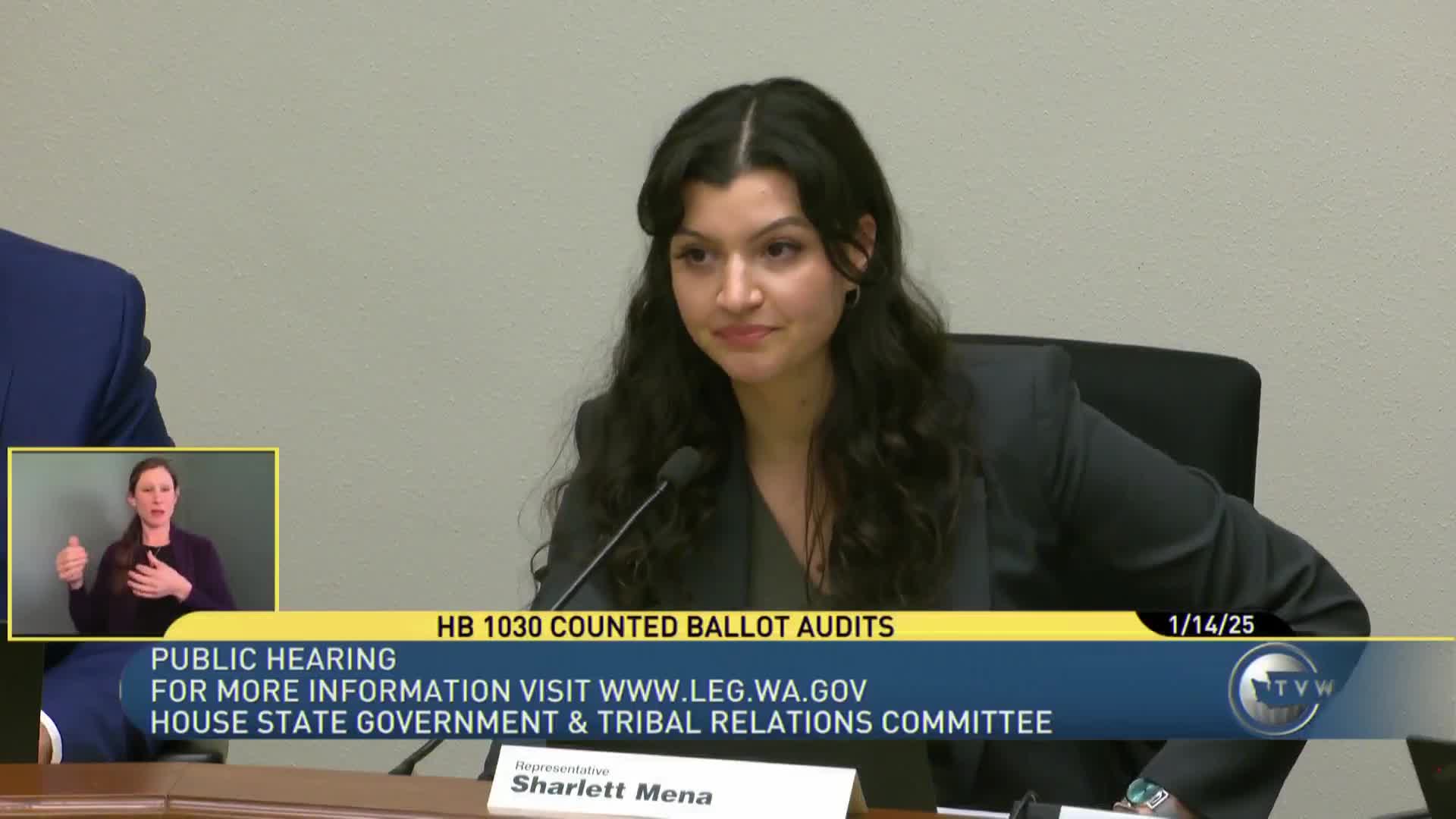Committee hears bill to narrow post‑election audit options to hand counts and risk‑limiting audits
Get AI-powered insights, summaries, and transcripts
Subscribe
Summary
House Bill 1030 would reduce the list of audit methods counties may use after elections to limited hand counts of selected precincts or batches and risk‑limiting audits, while preserving the requirement to audit duplicated ballots and adding a statewide risk‑limiting audit for statewide contests.
House Bill 1030, sponsored in committee testimony by Representative Lowe, would narrow the methods Washington counties may use to audit election results to two options: limited hand counts of randomly selected precincts or batches, and risk‑limiting audits, while keeping a separate duplicated‑ballot audit requirement.
The proposal, presented to the State Government & Tribal Affairs Committee in a staff briefing from Desiree Omley of the Office of Program Research and supported by Secretary of State Steve Hobbs, replaces independent electronic audits and the random check of ballot counting equipment with a single “limited hand count” option and clarifies risk‑limiting audit types. The bill also authorizes the secretary of state to conduct a statewide audit for contests that are filed with the office.
Supporters told the committee the change is intended to standardize auditing practices across counties and increase public confidence. Representative Lowe, the prime sponsor, said the bill creates “consistency, standardization, and helps the public gain a greater trust in our election process.” Secretary Hobbs said the bill gives “more tools in the toolbox” and adds a mandatory statewide risk‑limiting audit for statewide contests.
Under the staff explanation, limited hand count audits require a manual comparison of ballots for at least one precinct or two batches per scanner and are limited to a single contest; if the initial sample produces an unresolved discrepancy, the audit may be expanded and must be completed no later than 72 hours after election day. The existing statutory audit methods that would be removed under the bill are an independent electronic audit (a separate tabulation machine) and a random check of ballot counting equipment. The bill preserves risk‑limiting audits and adds an authorized batch comparison risk‑limiting audit that hand‑counts randomly selected batches until the sample meets the pre‑specified risk limit.
Committee members asked about tradeoffs between hand counts and other methods. Representative Walsh said some constituents worry that limiting options might reduce transparency; Secretary Hobbs and Department staff answered that local auditors retain discretion among the authorized options (except for a mandatory state risk‑limiting audit in statewide contests) and that the proposal was developed with local auditors.
Committee staff and witnesses clarified terminology during the hearing: the office corrected an earlier spoken acronym from “CSV” to CVR (cast vote record), and staff explained the statutory deadlines that currently apply to audits (the transcript noted a 48‑hour deadline for some audits and the bill’s 72‑hour deadline when an audit expands).
The committee closed the public hearing on HB 1030 after questions and moved on to other bills. No formal vote on HB 1030 was recorded in the hearing transcript.
The bill text and staff briefing materials should be consulted for statutory definitions and any drafting details not discussed at the hearing.
